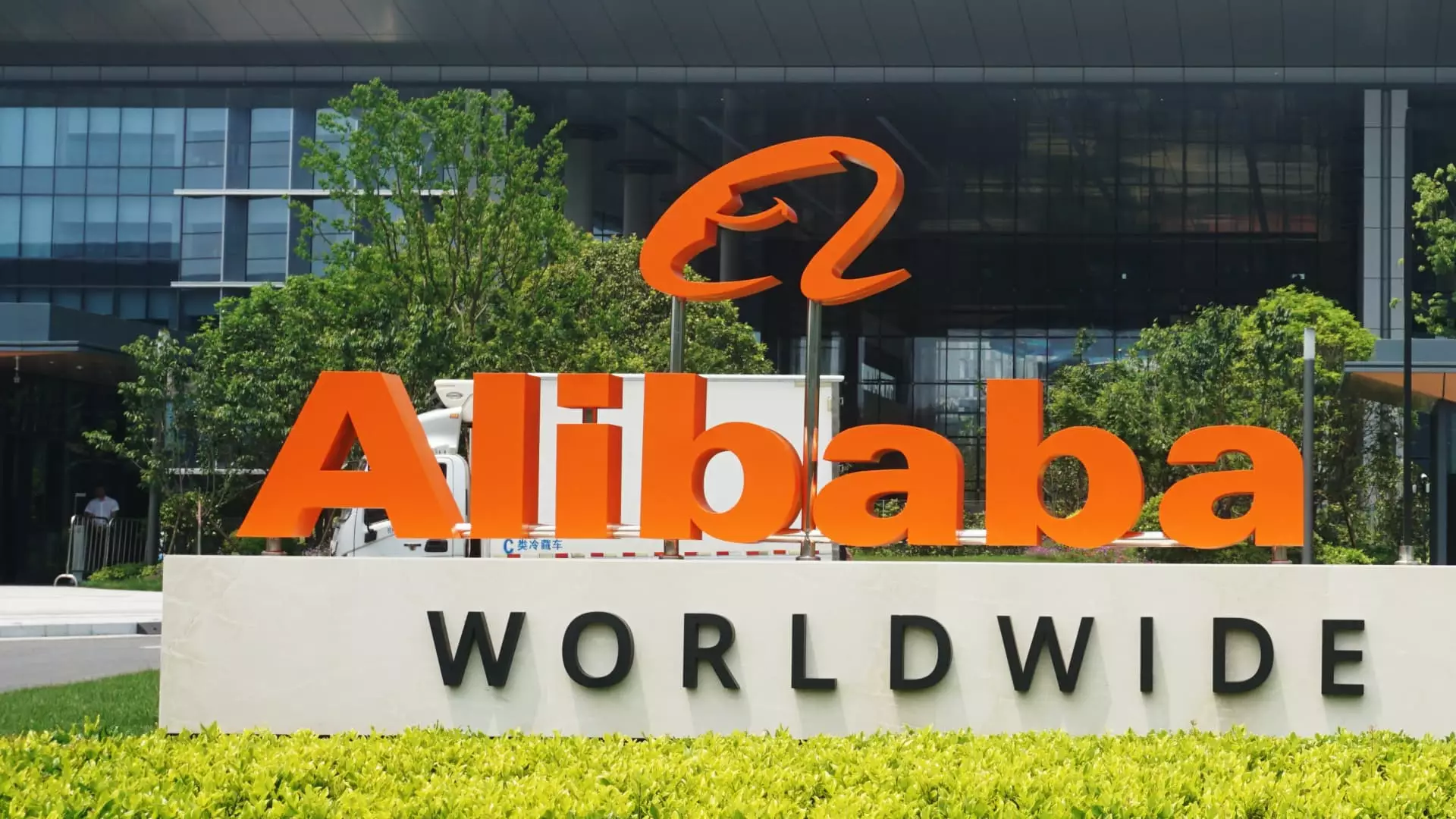The landscape of artificial intelligence (AI) is evolving at a breathtaking pace, and it heralds not just advancements in technology, but also promising financial returns. A new analysis from Morgan Stanley indicates that Alibaba is uniquely positioned to reap the rewards of this burgeoning sector. Considering the explosive demand for AI inference—essentially, the execution of AI tasks—the time is ripe for investors to rethink Alibaba’s placement in their portfolios. After all, when industry giants like Alibaba are in the crosshairs of an upward trajectory, the implications can be awe-inspiring.
The Analyst’s Bold Predictions
Morgan Stanley analyst Gary Yu has set an ambitious price target of $180 for Alibaba, which translates to nearly a 37% upside from recent trading levels. Even more astoundingly, his sum-of-the-parts valuation hints that the stock could potentially reach $200 per share, a staggering 52% higher from its current standing. For a company that has already surged over 57% since the beginning of the year—foreshadowing the stock market’s broader trends—this could be the tip of the iceberg.
Yu’s assertions are underpinned by a growing consensus that Alibaba is stepping into its role as a critical enabler of AI growth, positioning itself distinctively against competitors like Tencent and Bytedance. The latter firms appear more focused on internal GPU allocation, thereby granting Alibaba a unique competitive advantage in the cloud services arena. Given that AI inference demands have peaked following significant market shifts, Alibaba’s timing for seizing this opportunity couldn’t be more fortuitous.
The Case for Bullish Sentiment
Digging deeper into Yu’s projections, he foresees year-over-year growth in Alibaba’s cloud revenue, estimating an uptick from 13% in Q3 to an impressive 25% by fiscal 2026. This acceleration sets the stage for Alibaba to capitalize on its AI influence in the e-commerce domain. In a time when consumers increasingly demand personalized experiences, the synergy between AI technology and shopping experiences offers a goldmine of opportunity.
With a forward price-to-earnings ratio of 13.1, Alibaba stands as a bargain compared to its competitors. Yu confidently posits that enhanced AI offerings will boost user engagement and time spent on platforms, which, in turn, will drive e-commerce activities to new heights. The interplay of expanding online penetration and improved gross merchandise value is likely to create a feedback loop of increasing returns.
Wall Street’s Unwavering Support
It’s noteworthy that Wall Street is rallying behind Alibaba with remarkable consensus—41 out of 43 analysts carry either a “strong buy” or “buy” rating. This overwhelming support reflects not just a passing trend, but a rooted belief in Alibaba’s long-term potential in the AI sector. Given such a near-universal bullish sentiment, one cannot overlook the potential for further stock price appreciation.
As we stand on the brink of an AI-driven economic revolution, it is crucial to heed the potential that exists within companies like Alibaba. Its early adoption of AI technology within its e-commerce framework may very well lead to consequential shifts in the industry, magnifying its growth and positioning it as a leader amidst a transforming economic landscape. The question remains: Are investors ready to join the ranks of those who see the future illuminated through Alibaba’s rising trajectory?

